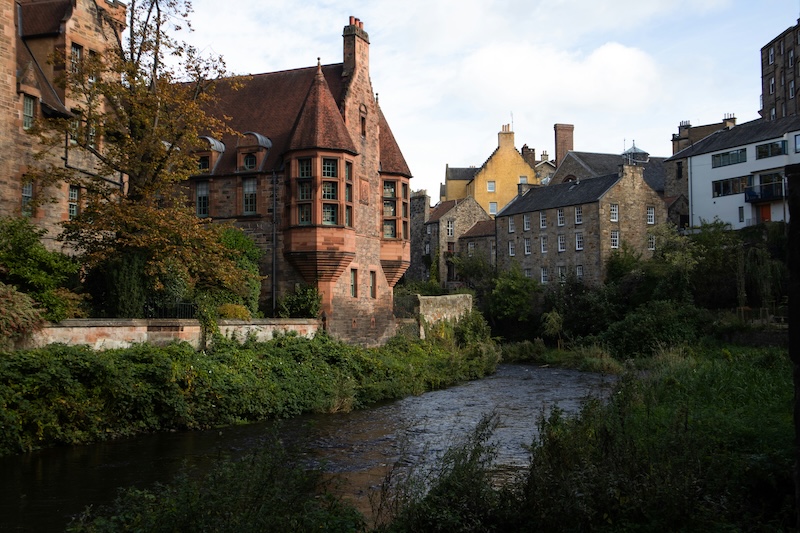What is Buildings Insurance?
From unlimited rebuilds to owner’s liability—get to grips with your policy.

From unlimited rebuilds to owner’s liability—get to grips with your policy.

Buildings insurance is a type of home insurance that protects the structure of your property—covering walls, roof, and permanent fixtures—against risks like fire, flood, or subsidence. If you’re a homeowner, your lender will likely require you to have a buildings insurance policy to cover the cost of repairing or rebuilding your home if disaster strikes.
Let’s explore how a typical buildings insurance policy works, who needs it, and what to look out for when comparing your options.
A buildings insurance policy pays out if the structure of your home—such as the walls, roof, and permanent fixtures—is damaged by an insured event like fire, storm, flood, or vandalism.
After your insurer confirms the damage is covered, you’ll just pay your chosen excess, and they’ll take care of the rest. When you set up your policy, you’ll pick the excess amount that works for you. With Lemonade Buildings Insurance, you’ll need to choose two separate excess amounts:
Choosing a lower excess means you’ll pay less if you claim, but your premium will be higher. On the flip-side, choosing a higher excess amount will lower your premium, but you’ll be responsible for a larger sum in the event of a claim.
Picture this: You’re cooking a Sunday roast when a rag accidentally catches fire, spreading flames and smoke damage throughout your fitted kitchen causing £6,000 in repairs. Thanks to your Lemonade buildings insurance, you simply file a claim right on the Lemonade app. After you pay your chosen excess of £100 your policy covers the remaining £5,900—so you can get back to normal without facing a huge repair bill.
Most policies include core covers to protect your property’s essentials, plus optional extras such as accidental damage or alternative accommodation for added peace of mind. Let’s take a closer look at each:
| What it covers | How it protects you |
|---|---|
| Unlimited rebuild cost | We pay to rebuild or repair the structure of your home—think walls, roof, fitted kitchen, and permanent fixtures |
| Alternative accommodation | Hotel or short-let bills (plus extra food & laundry) while your place is being fixed, up to £50,000 |
| Owner’s liability | Up to £2.5 million if you cause injury or damage to others as the owner of your property |
| Add-on Cover | What it does |
|---|---|
| Home emergency cover | 24/7 call-out for a broken boiler, blocked drains, or lost keys (up to £1,000 per event) |
| Legal protection cover | Help pursuing or defending personal legal disputes—anything from wrongful dismissal to neighbour nuisance |
| Accidental damage cover | Covers sudden mishaps you cause (e.g. drilling through a pipe), up to £2,000 per claim |
| Household member extension | Living with a partner or family? Add them so the policy covers them, too |
The price of your buildings insurance quote depends on several factors—property type and age, construction materials, postcode, level of cover, chosen excess, and any optional extras or add-ons you choose.
With Lemonade, the unlimited cost of rebuilding means you won’t pay extra for underinsuring your home’s structure. Increasing your voluntary excess can help lower premiums, and you’ll pay more for enhanced features like accidental damage or alternative accommodation.
Whether you need buildings insurance comes down to your situation:
While buildings insurance covers a ton, there are a few exclusions to keep in mind:
Buildings insurance is the safety net that keeps your biggest asset—and everyone who depends on it—secure. Ready to safeguard your home? Get a quote with Lemonade in minutes and see how easy unlimited cover can be.
No. You’ll need to buy accidental damage cover as an optional extra with your home insurance policy.
Yes, but only if they are located at the same address and if your main home has also been damaged by a covered event.
If you extend your house, you need to notify your insurer so your unlimited rebuild cover remains up-to-date.
Owner’s liability is tied to your role as a property owner, while personal liability applies to everyday activities unrelated to property ownership. It focuses more on how you use or occupy the property. For instance, if your cooking accidentally starts a fire in a mate’s kitchen, personal liability would come into play.
Buildings insurance covers the structure and permanent fixtures; contents insurance secures your personal belongings inside the property.
Please note: Lemonade articles and other editorial content are meant for educational purposes only, and should not be relied upon instead of professional legal, insurance or financial advice. The content of these educational articles does not alter the terms, conditions, exclusions, or limitations of policies issued by Lemonade, which differ according to your state of residence. While we regularly review previously published content to ensure it is accurate and up-to-date, there may be instances in which legal conditions or policy details have changed since publication. Any hypothetical examples used in Lemonade editorial content are purely expositional. Hypothetical examples do not alter or bind Lemonade to any application of your insurance policy to the particular facts and circumstances of any actual claim.